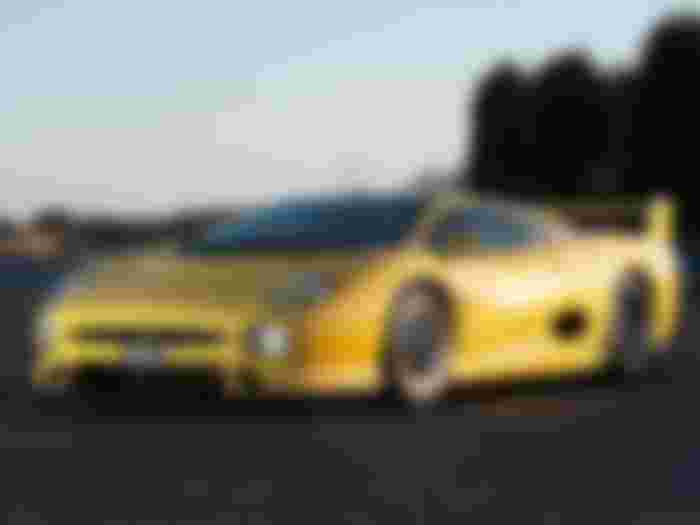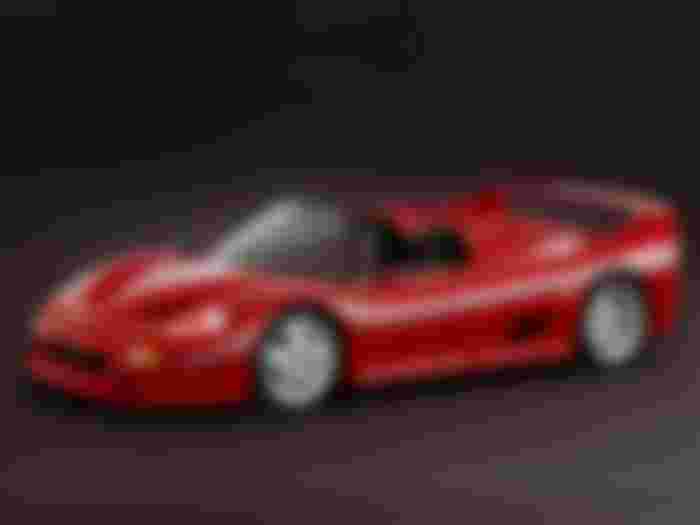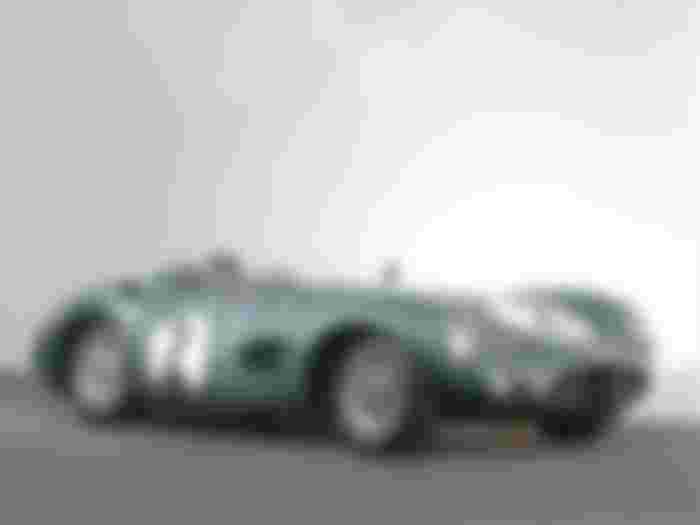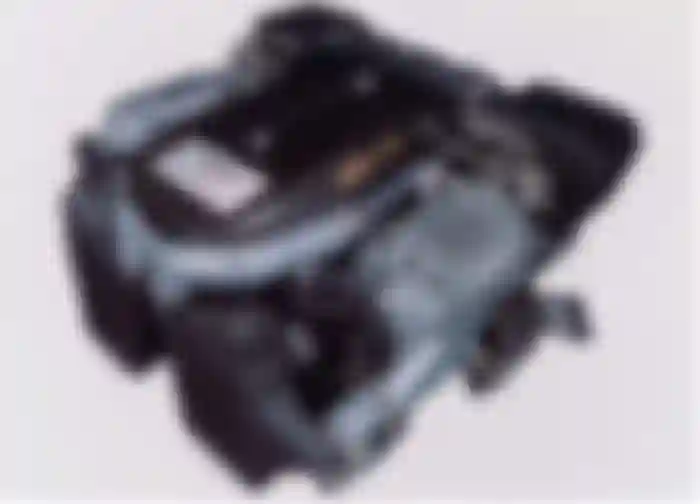A British Bruiser - Aston Martin Vantage V600 Le Mans (1999)
Britain may not have created the automobile, but it certainly has remained truly the finest place on Earth to refine one. The island nation has gifted humankind with the very best of refined craftsmanship, with a can-do attitude, and stiff upper lip, within vehicles made for every purpose.
One particular trait of the British automotive industry, where it stands as unique compared to the rest of the world, is their ability to maintain a steady balance between old and new, to provide the best of both experiences. This is a juncture, where tradition collides with technology, between the analogue and the digital.

One such marque that has embodied this philosophy within its identity, is Aston Martin. Whereas most manufacturer of sports cars may seek to master performance at all costs, Aston Martin had long maintained craft and sensation in equivalence to outright power. Soon, the company will celebrate its 107th anniversary, with a long and storied legacy cementing its future.
Yet, while the company has lived long, its fortunes have not always been so fruitful, having flirted with insolvency throughout its history. Consequently, Aston's shaky finances over its 107 years have at times, resulted in very unique cars, sometimes built purely to show what the brand is capable of, rather than profitability.
Old-school, or old-fashioned?
One such car was the Vantage V600 Le Mans, a high-performance model of Aston Martin's Virage line-up. Aston's V600 was revealed in 1999, not only as the last of the Virage lineage, but also to commemorate the 40th anniversary of Aston Martin's victory at the 24 hours of Le Mans in 1959, hence its name.




As a late 1990s supercar, it sat as an underdog within the segment, with venerable names such as the Ferrari F50, McLaren's F1, the Bugatti EB110, Lamborghini Diablo, and Jaguar's XJ220 competing against it.
Yet, the Le Mans stands out amongst them, not for its performance, but for its craftsmanship. Whereas its rivals take pride of athleticism and lightness, Aston's V600 Le Mans is fairly old-school in its construction. For many, the V600 LM may be considered as the end of an era, as a proper coach-built sports car.

Unlike its contemporary rivals which used advanced manufacturing techniques, and materials such as carbon-fibre, the V600 Le Mans is hand-built, in every aspect. The aluminium bodywork is hand-beaten, with leather, wood, and wool chosen from the very best of Britain, sitting on top of a steel chassis. As a result, all this craftsmanship had a kerb weight of just under 2 tonnes, sitting at 1975 kg (4354 lbs), certainly heavier than most sports car of the era.
That said, the excessive diet is not easily discernible from the brutish design of the V600, certainly a contrast to the elegance of other Astons. The bodywork is widened, lowered and smoothened for aerodynamics, with various extrusions and wide haunches. Overall, the V600 appears more of a muscle-car in its stance, with a mix of the angular design from the 80s, and the more curvaceous design of the 2000s.


The V600, although being in the same family, shares very few panels with the earlier Virage models, only using the doors and roof. Otherwise, the styling of the V600 is completely new. Along the side, its silhouette is similar to an earlier Virage, with the exception of the skirts, and side vents. Here, it acts to pull air from the wheel arches to relieve pressure and heat, but also to pay homage to Aston's 1959 Le Mans winner, the DBR1.
In the front, the V600 has a sharper face than the Virage, with its hallmark "nostrils " on the front grille, to smoothen the air flow over to the bonnet. Speaking of, the bonnet was significantly redesigned to better ventilate heat from the engine. It had larger bulges than a regular Virage, with ventilation and ducts aplenty.


A brute in a suit.
All those vents on the bonnet are necessary, considering how much power the V600 had, even compared to today's cars. Somehow, Aston Martin decided that the earlier Virage "Vantage" models weren't powerful enough, with 550 hp, termed the Vantage V550.
Thus, the twin-supercharged 5.3 L V8 was now tuned to produce 600 hp, and 600 lb-ft of torque for the V600, all of which goes through a 5- or 6-speed manual transmission, sending the power to the rear-wheels. Depending on your specification, you could have the V600's engine bay adorned with some lovely carbon fibre. With regards to the rear-wheels, Aston spent much time to tune it even further, using enhanced Koni shock-absorbers, springs, and stiffer antiroll-bars.

Adorning the V600s tyres were massive 14-inch vented steel disc brakes, and lightweight 5-spoke Dymag magnesium wheels. These modifications combined, had managed to turn the soft Virage, into a proper supercar. Acceleration to 60 mph takes just 3.9 seconds, fairly quick by the standards then, with a top speed of 199 mph, though some claims have been made of the V600 going over the 200 mph barrier, making it the fastest production car at the time.

The interior, despite the V600's extreme power figures, is not bare or stripped down as its competitors. In fact, Aston Martin chose to fashion the cockpit similarly as to its other cars from the era, such as the DB7. As mentioned before, the V600 is a rather hefty car, and some of the interior adornments contribute to that weight.
While some components were finished in lightweight titanium, the V600's included features such as a heated windshield, parking radars, traction control, heated electric seats, and plush Connolly leather upholstery with Wilton wool carpeting. Put together by Aston Martin's best craftsmen, sitting inside the V600 is a lovely and sumptuous affair, as much a supercar as it is a grand-tourer.

However, one of the weaker aspects of the V600, as with most Aston Martin's of the era, were primarily due to the company's weak financial position. Back then, Aston Martin was largely owned by Ford, under their Premier Automotive Group brand. This meant, Aston had to rely on Ford to balance its accounts, and cost-cutting was necessary in some places.
Aston Martin had to plunge into Ford's parts-bin for some of the V600's componentry, and this is clearly visible when sitting inside it. The single most important control, the steering wheel, is the very same unit used by Land Rovers, Jaguars, and Lincolns of that same era, all of which belonged under Ford's PAG. Some of the switchgear, were also shared with those cars, and can be politely termed as "plasticky ", a stark difference with the rest of the V600s luxurious interior.


Nevertheless, those small complaints pale in comparison to the V600 as a whole package. It punches hard on the road, as a demanding and engaging car to drive, but equally as comfortable to cruise in. While certainly a supercar in raw numbers, it behaves more as a naughty grand-tourer, capable of soft or hard driving, depending on the driver's right foot.
Production numbers are difficult to ascertain. Aston Martin officially made 40 coach-built Vantage V600 Le Mans cars (which is the one you're seeing in the photos ), which had slightly more power at 604 hp, and 605 lb-ft of torque. However, customers of the "ordinary" Virage Vantage can also specify an upgrade with the V550 or V600 performance packs post-purchase, through Aston Martin's "Works Service".

Regardless of however many V600s were made, we can at least know one fact; and that each customer who had commissioned one must surely have had a huge smile on their faces. While the V600 Le Mans remains relatively unknown compared to most 1990s supercars, their huge entertainment value makes for a great classic, and analogue addition to any garage.
Aston Martin didn't need to make such a mad car. However, what they've done is so much more. The V600 Le Mans is a celebration of Aston Martin's past, and a culmination of what they do best, as the company moves ahead to a new future. It marks the end of an era for the storied marque, all put into a hugely fun, luxurious, and engaging supercar to mark the end of the 20th century.
Sources credit to: Netcarshow, Wikipedia, DriveTribe, Classic Driver, Nicholas Mee, GIPHY
















Wow great in depth article. I'm guessing you must be a car enthusiast?